Location
Ghana is located on the west coast of Africa, about 750 km north of the equator between the latitudes of 4 and 11.5o north and longitude 3.11° West and 1.11° East. It is bounded on the north by Burkina Faso, on the west by La Cote D\'lvoire, on the east by Togo and on the south by the Gulf of Guinea (Atlantic Ocean). Tema, the industrial city, which is adjunct to Accra, the capital city of Ghana, is on the Greenwich Meridian (zero line of longitude), making Ghana the closest landmark to the centre of the world.

Historical Background
The name Ghana originates from an African empire, which was located around River Niger between 400 and 1240AD. The period between the 15th and 19th Centuries witnessed a power struggle for the country amongst European nations for fortunes in gold and ivory, following the advent of the Portuguese who discovered gold in 1471 and built Elmina Castle in 1482. The other Europeans were the Dutch, Swedes, Danes, Prussians and the British. The battle for control and supremacy over the land culminated in the building of many forts and castles, which were used not only as trading posts but also as dungeons for the infamous slave trade. It is significant to note that out of the about forty-three (43) forts and castles in West Africa, thirty-three (33) are in Ghana alone. Out of these about twenty five (25) are in good condition, including Elmina and Cape Coast Castles and Fort St. Jago, all three of which are recognised by UNESCO as World Heritage Monuments. Ghana, formerly called the Gold Coast, became independent from British colonial rule on March 6, 1957. It was the first black African colony to achieve independence.
Economic overview
Well endowed with natural resources, Ghana has roughly twice the per capita output of the poorest countries in West Africa. Even so, Ghana remains heavily dependent on international financial and technical assistance. Gold and cocoa production, and individual remittances, are major sources of foreign exchange. The domestic economy continues to revolve around agriculture, which accounts for about 35% of GDP and employs about 55% of the work force, mainly small landholders. Ghana signed a Millennium Challenge Corporation (MCC) Compact in 2006, which aims to assist in transforming Ghana\'s agricultural sector. Ghana opted for debt relief under the Heavily Indebted Poor Country (HIPC) program in 2002, and is also benefiting from the Multilateral Debt Relief Initiative that took effect in 2006. Thematic priorities under its current Growth and Poverty Reduction Strategy, which also provides the framework for development partner assistance, are: macroeconomic stability; private sector competitiveness; human resource development; and good governance and civic responsibility. Sound macro-economic management along with high prices for gold and cocoa helped sustain GDP growth in 2008.
Natural Resources
Ghana has rich mineral resources such as gold, diamonds, manganese, limestone, bauxite, iron ore as well as various clays and granite deposits. In 1999, Ghana produced 2,620,096 million ounces of gold and 684,033.4 carats of diamonds. (Ghana is the second largest producer of gold in Africa). Extensive forests, which are one of the best managed in West Africa (with 252 permanent forest reserves in the rain forest zone alone. In total about 11% of Ghana is defined as forest.). Ghana is the second largest producer of cocoa in the world. It is also the third largest producer of timber and the second largest exporter of wood and wood products in Africa.
Energy sector
The total indigenous primary energy produced in Ghana in 2000 was 6.2 million tones of oil equivalent5, about eleven and half times the yearly average energy generated at Akosombo and Kpong hydroelectric plants (see table 1.1). This rose to 6.6 Million tones of oil equivalent by 2004 with average growth rate of 2.4 percent per annum over the period 2000 - 2004. The indigenous primary energy comprised 90-95 percent wood fuels (generally called biomass), 5-10 percent hydro energy and less than one percent solar energy. The hydro was supplied from Akosombo and Kpong dams in the form of electricity. Solar energy is used for the sun-drying of crops: cocoa, cereals, vegetables consisting of groundnuts and pepper and other exportable commodities requiring drying. Solar energy for production of electricity is relatively negligible; about 140 tones of oil equivalent. Net energy import was about 1.9 million tones of oil equivalent in 2000 increasing to 2.4 million tones of oil equivalent by 2004. It comprised 80-83 percent crude oil and about 15-19 percent petroleum products.
The primary energy production and the net import make up the primary energy supply and it totaled about 8.1 and 9.1 million tones of oil equivalent in 2000 and 2004 respectively.
Biomass in the form of firewood and charcoal still dominated the final energy reaching the consumer, averaging 63 percent over the period. Petroleum products and electricity followed with 27 percent and about 9 percent respectively. Electricity imports and solar energy comprised about 0.2 and 0.1 percent on the average respectively during the period.
Final energy supply, i.e. the energy finally reaching the consumer after transportation and transmission was about 6 million tones of oil equivalent in 2000 and about 6.3 million tones in 2004. Energy losses totaled about 26 percent of the total primary supply of 6 million TOE in 2000 but increased to 30 percent of 6.3 million TOE in 2004.
The residential or household sector of the economy takes up on the average almost 50 percent of the country's energy consumption. The significant residential sector share of the nation's energy demand is due to the high usage of wood-fuels comprising mainly firewood (almost 76 percent) and charcoal.
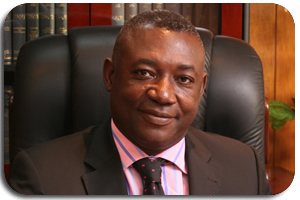 Mr. Charles Owusu Juanah, Esq and Mr. Kwame Amoako, EsqPartnersK-SAN LAW FIRM Mr. Charles Owusu Juanah, Esq and Mr. Kwame Amoako, EsqPartnersK-SAN LAW FIRM |  Mr. Tallal SangariCreative DirectoriCreate Advertising Mr. Tallal SangariCreative DirectoriCreate Advertising | 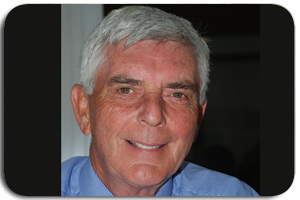 Mr. Geoff Fisher -BSc. Civil and Str. EngineerChairman and Managing DirectorTaysec Construction Limited Mr. Geoff Fisher -BSc. Civil and Str. EngineerChairman and Managing DirectorTaysec Construction Limited | 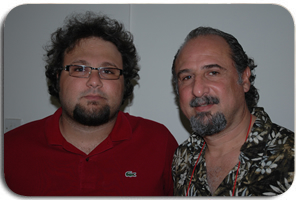 Hadi Domlodge/ Zafer DomlodgeManagin director/ DirectorMobiCrane Ghana Hadi Domlodge/ Zafer DomlodgeManagin director/ DirectorMobiCrane Ghana |
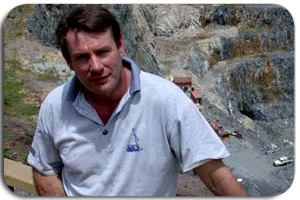 David HarperManaging DirectorGeodrill Ghana Limited David HarperManaging DirectorGeodrill Ghana Limited | 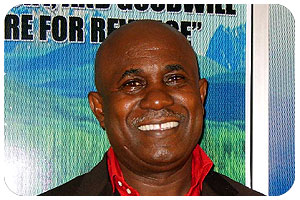 Mr. David AmebleManaging DirectorInter Maritime Services Ltd. Mr. David AmebleManaging DirectorInter Maritime Services Ltd. |  Ekow SamOwnerPaintsiwa Wangara Condominium Apartments Ekow SamOwnerPaintsiwa Wangara Condominium Apartments |
 K-SAN LAW FIRMLegal Services K-SAN LAW FIRMLegal Services |  La Paradise InnTourism La Paradise InnTourism |  PENTA HOTELTourism PENTA HOTELTourism |  -iCreate AdvertisingServices -iCreate AdvertisingServices |
 Taysec Construction LimitedConstruction Taysec Construction LimitedConstruction |  Nova HotelTourism Nova HotelTourism |  African Underground Mining Services GhanaMining African Underground Mining Services GhanaMining |  African Mining Services GhanaMining African Mining Services GhanaMining |
 Euro Afric Consult LtdOil Supporting Services Euro Afric Consult LtdOil Supporting Services |  The Paintsiwa Wangara Condominium ApartmentsTourism The Paintsiwa Wangara Condominium ApartmentsTourism |  Geodrill GhanaMining Geodrill GhanaMining |  Mobi CRANE GH LTDOil Supporting Services Mobi CRANE GH LTDOil Supporting Services |
 Wiltex LimitedMaritime Wiltex LimitedMaritime |  Inter Maritime Services Ltd.Maritime Inter Maritime Services Ltd.Maritime |